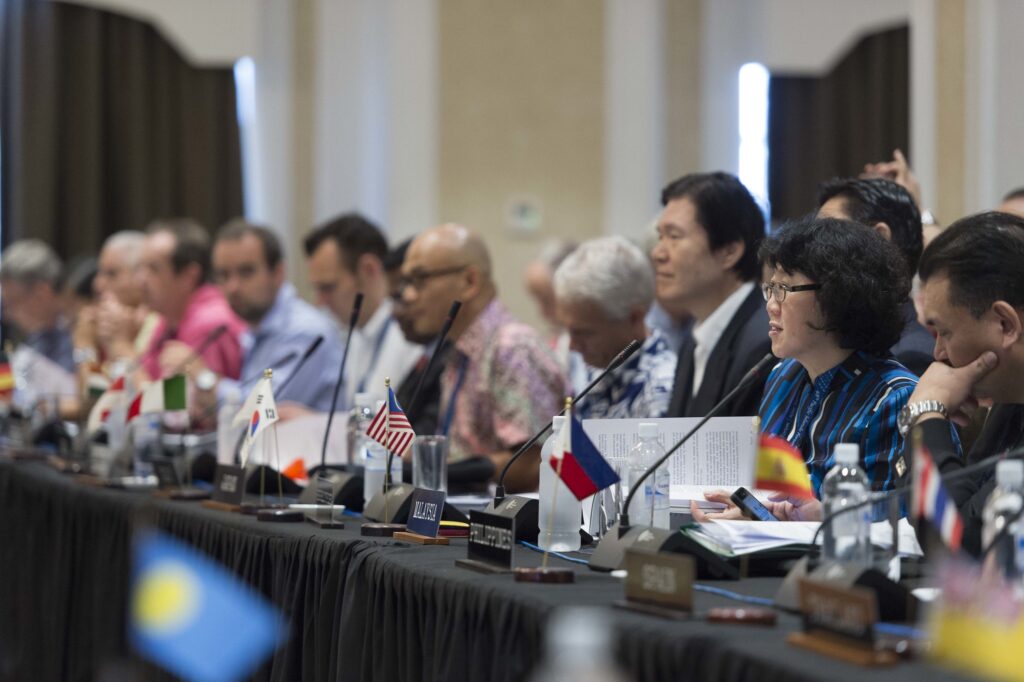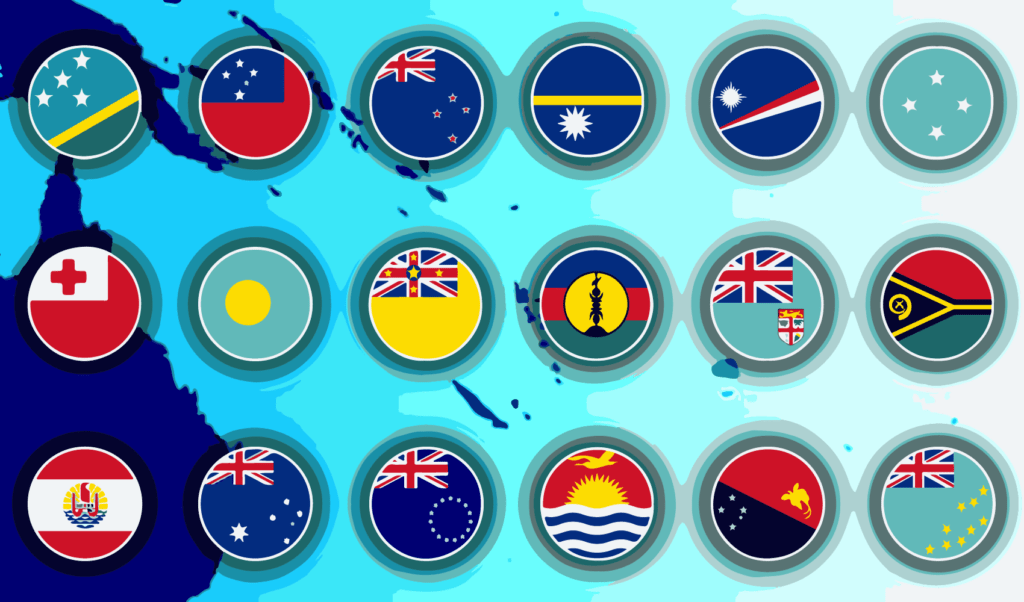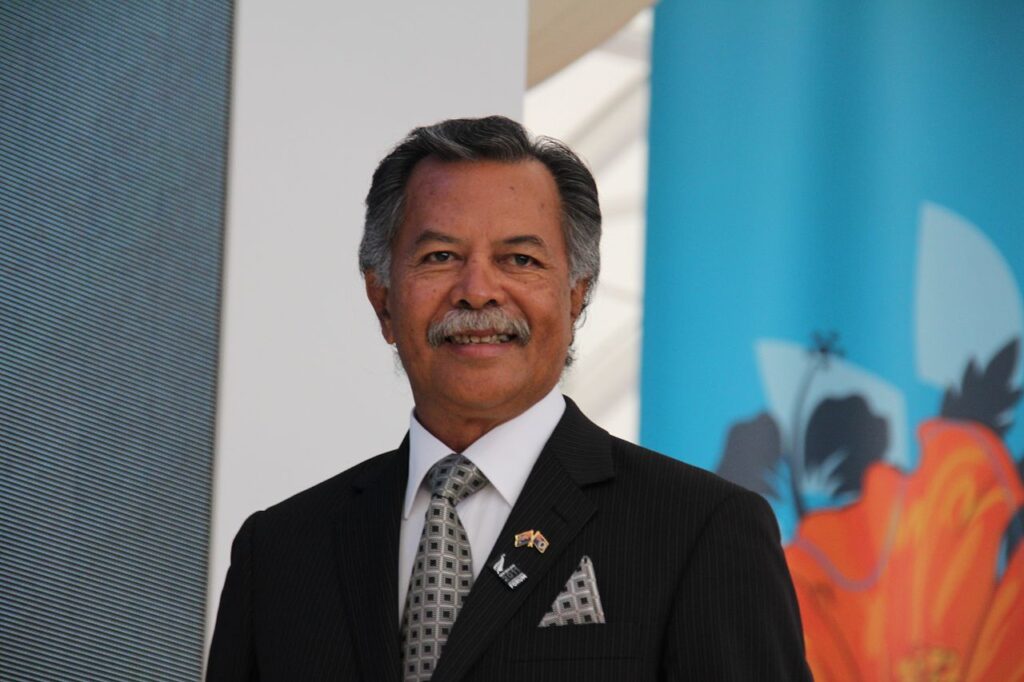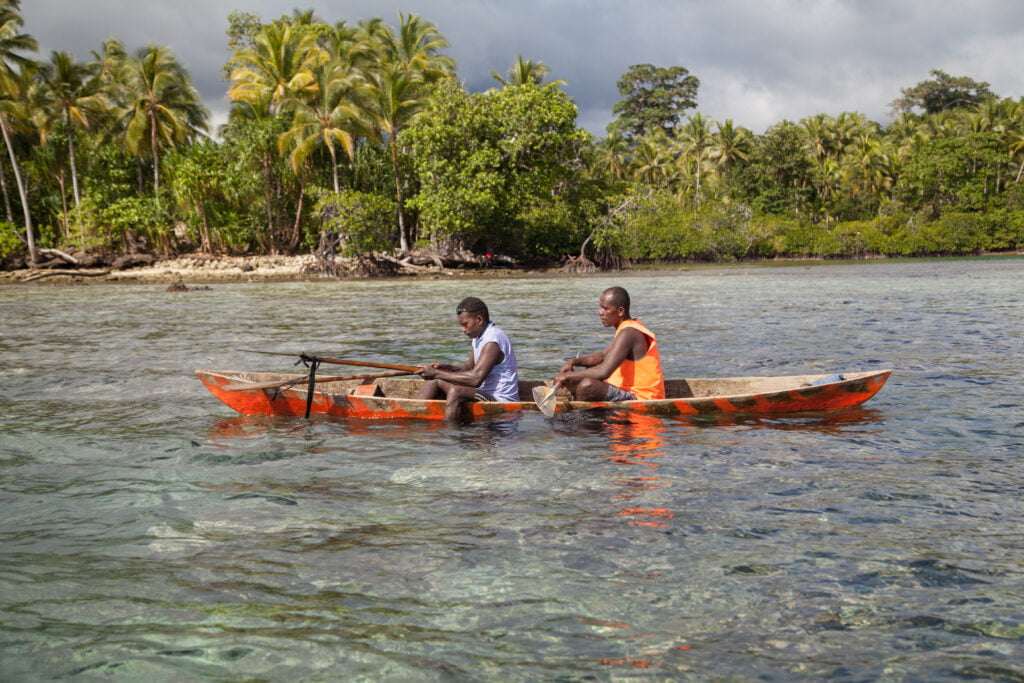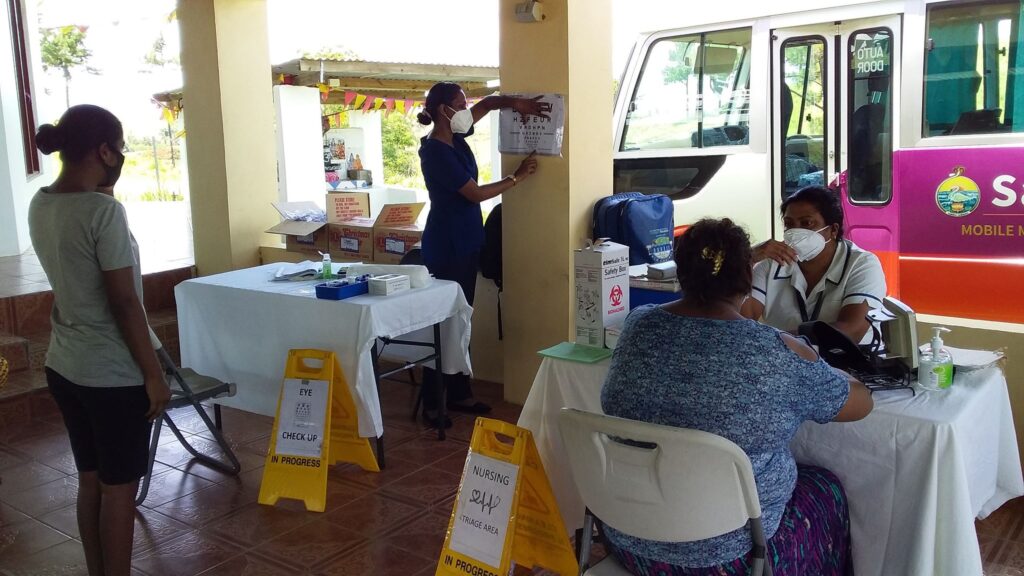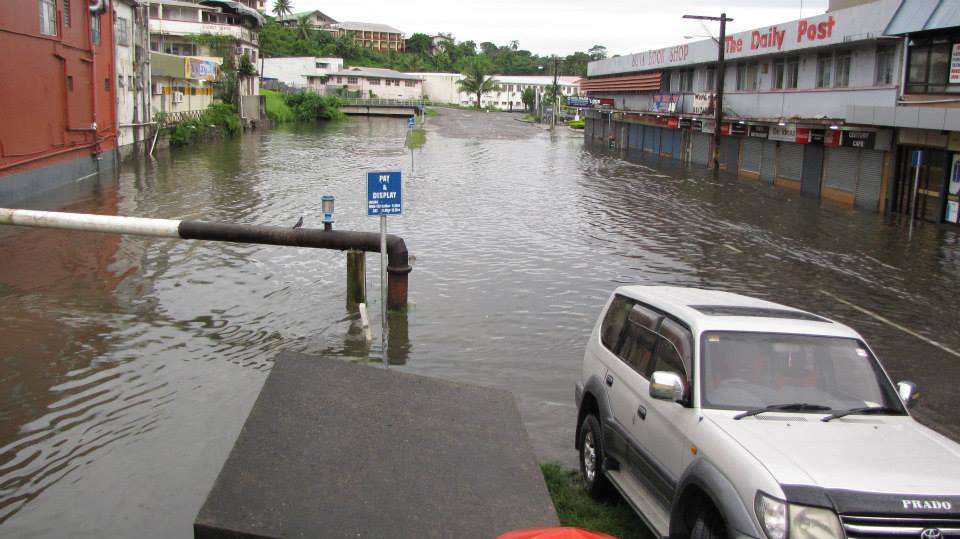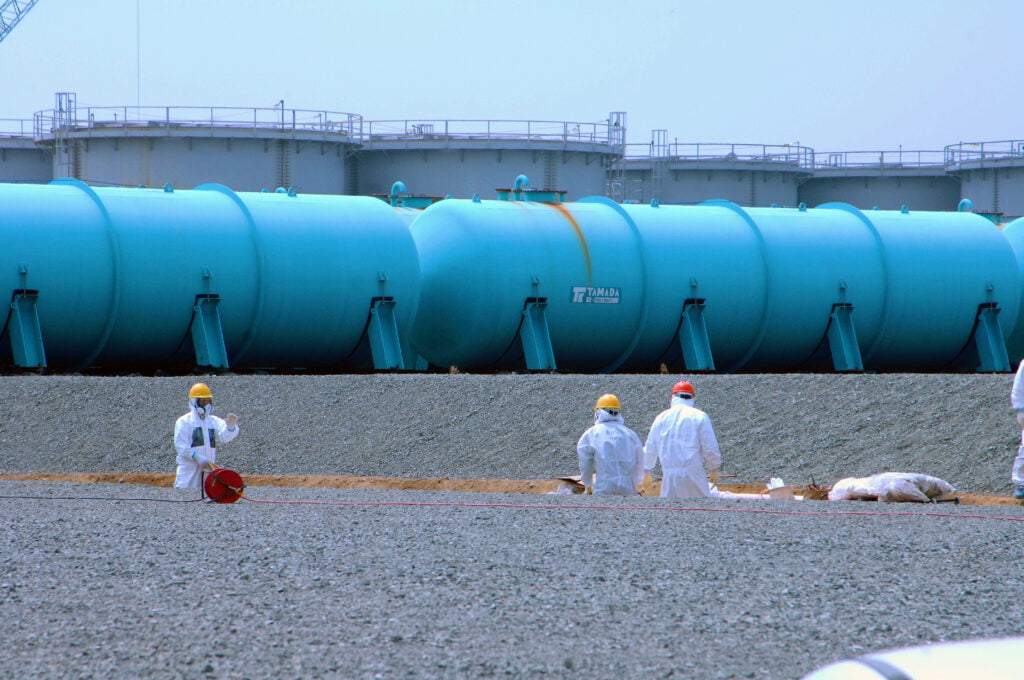Encouraging work abroad schemes could help Pacific Island nations to steer their way clear of crippling debt.
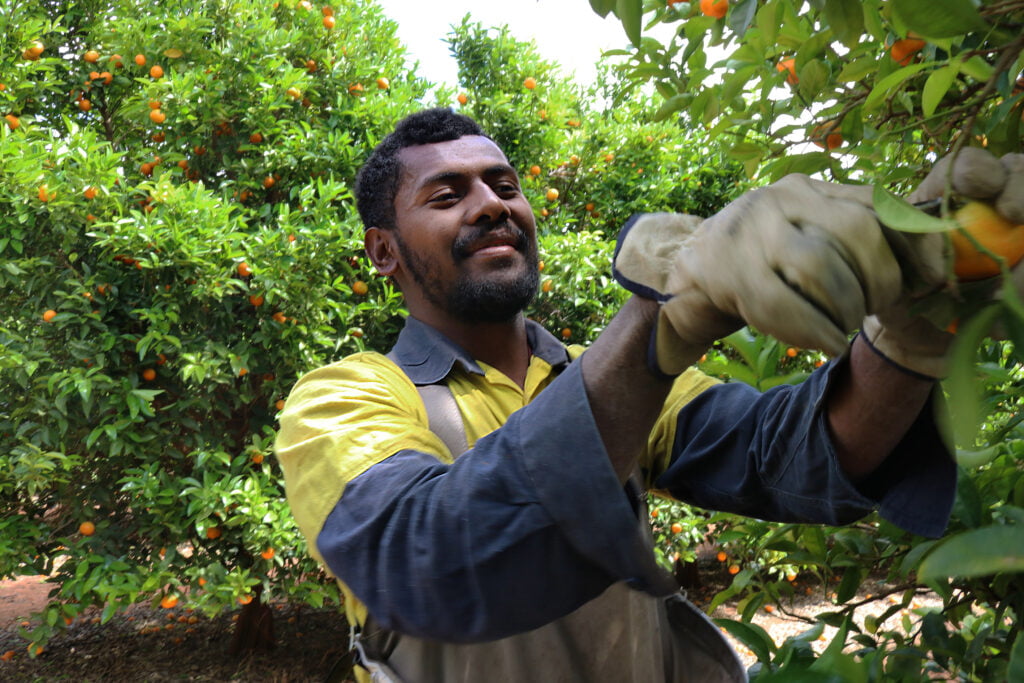 Pacific Islanders’ lack of mobility during COVID-19 was crushing for both their economies, and the fruit industry in Australia and New Zealand. : DFAT (Flickr) CC 2.0
Pacific Islanders’ lack of mobility during COVID-19 was crushing for both their economies, and the fruit industry in Australia and New Zealand. : DFAT (Flickr) CC 2.0
Encouraging work abroad schemes could help Pacific Island nations to steer their way clear of crippling debt.
Pacific Islanders have always been travellers. Setting forth in ocean-going canoes, they first spread to new lands and new prosperity more than 5,000 years ago. Today, they are still going. In 2017-2018, before COVID-19, more than 18,000 Islanders travelled to New Zealand or Australia for work.
Pacific Island countries rely on the money wired home. Seven of the top ten recipients of remittances, as measured by share of gross domestic product, are in the Pacific region. Far from being a problem, remittances play a major role in maintaining national debt in the Pacific at a sustainable level. If Pacific Island countries were to negotiate with their key trade partners — Australia, New Zealand, and China — to facilitate the movement of skilled workforce, they could expect skills, income, and increased government revenue.
Globally, we have witnessed a rapid growth of debt over the past three years, due to the need to shore up economies against potential economic and financial crises due to the COVID-19 pandemic. The rate of global debt accumulation during the COVID-19 pandemic was faster than the early phases of the Great Depression and the Global Financial Crisis of 2007/2008. Nearly 60 percent of developing countries, which include Pacific Island countries, are now either in distress or at risk of distress. For example, Papua New Guinea’s gross financing needs (the sum of primary fiscal deficit and maturing debt obligations) between 2021 to 2023 are projected at 13.4 percent of gross domestic product, which is 6.4 percent above the pre-pandemic level. This substantial growth in debt in Pacific Island countries has exposed them to debt problems, which are expected to worsen in the coming years. Currently, none of the Pacific Island countries are in distress but most are high risk. The Pacific Island countries’ average debt-to-gross domestic product ratio has increased from 32.9 percent in 2019 to 42.2 percent in 2021. Fiji, Vanuatu and Palau all recorded debt-to-gross domestic product ratios of above 70 percent in 2021.
Historically, remittances from workers abroad have played a major role in keeping fiscal deficit in the Pacific at a sustainable level. Remittances enhance government revenue by increasing household consumption of local goods and services and their associated taxes. Remittances increase deposits in the financial system, which are channelled to support government debts via treasury bond purchases by banks. Moreover, remittances increase the demand for money (and for banking sector liabilities) thereby increasing the revenue the government generates by issuing currency. This is called seigniorage revenue.
In Samoa and Tonga, for example, remittances make one-sixth and two-fifths, respectively, of their gross domestic product. However, these countries have recently experienced a decline in remittances, as a result of the COVID-19 pandemic and restricted travel. The World Bank estimated that remittances to the Pacific will decline by 4.3 percent for 2020 on account of COVID-19. Palau’s remittances were projected to decline the most, at 29 percent.
Conversely, some of the Pacific Island countries experienced record growth in remittances. In 2020, for instance, Tonga recorded the highest remittance inflows of approximately 38 percent of its GDP. Similarly, Fiji’s inward personal remittances grew by 14.6 percent in 2021, reaching a new high of US$842.2 million.
Even though the debt road ahead is not a smooth one for the Pacific Island countries, the performance of remittances during these uncertain times suggests that policymakers can better tap them to bolster their countries’ debt position.
To assist in labour mobility, Pacific Island countries could be negotiating with wealthier trade partners for special visa arrangements and immigration schemes. These countries could lower visa requirements, encourage businesses to employ workers from the Pacific Island countries, promote equal workplace rights for these workers, and lengthen the maximum residency of these workers. This will increase the inflow of workers from the Pacific to their trade partners. The workers can then develop skills, earn income, support their families and communities, and in turn increase remittances and government revenue in the Pacific Island countries.
Professor Paresh Narayan is a highly cited researcher at the Monash Business School, Monash University, a consultant to numerous governments, central banks and financial institutions, and a Commissioner at the Fiji Higher Education Commission.
Dr Bernard Njindan Iyke is a research fellow at the Monash Business School, Monash University. He regularly collaborates with central bankers.
They declare no conflicts of interest
Originally published under Creative Commons by 360info™.


